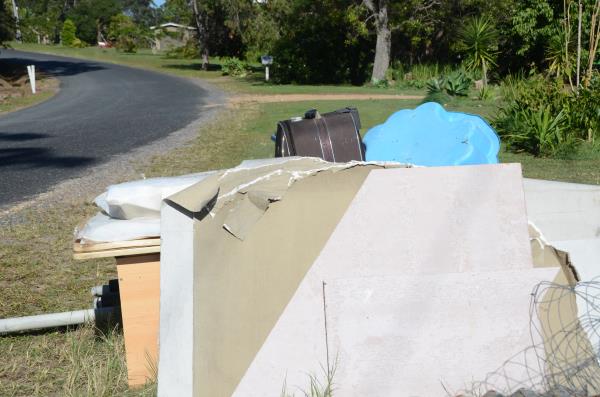A REPORT on Noosa’s recent kerbside bulk waste collection shows the popular service was a huge success, but there are lessons to be learned about how it might be done better next time.
Among the issues to be tackled in the future are those of people dumping mattresses, tyres and other prohibited material on the kerbside, people dumping useful items like working white goods instead of delivering them to not-for-profit groups, and residents from the neighbouring Sunshine Coast Council area dumping their unwanted goods on Noosa streets.
The report by Noosa Council’s waste co-ordinator Doug Barnes said that 9723 properties took part in the clean-up, that’s two out of every five properties in the Noosa Shire.
Ten trucks and forklifts were involved, operated by 19 Cleanaway staff who collected 1500 tonnes of material, nearly three times as much as the last collection in 2009.
Some 315 tonnes of that was metal sold to recyclers for $59,000, money returned to the council and contractor.
The kerbside bulk rubbish collection became a rallying cry for Free Noosa supporters, an example of what had been lost when our council was amalgamated.
Now the service is back, apparently to stay, but with some issues to ponder for the future.
Many people ignored warnings about dumping prohibited material such as asbestos, batteries, tyres and mattresses, and the culprits often left them in front of other people’s homes.
There were complaints about the seven weeks it took to conduct the entire clean-up, but this was explained by the huge amount of waste that residents had been waiting to get rid of.
In his report, Mr Barnes suggested contractors could prioritise high profile roads next time, so fewer tourists see the piles of kerbside junk.
The Salvation Army and Brite Side Industries also reported a big drop in useful items for resale through the period, apparently because many people thought it easier to leave things in front of their homes rather than have them delivered to not-for-profit organisations.
Mr Barnes also recommended that electronic waste should be collected by a separate truck so it can be protected for recycling, and that green waste should be excluded from the free service because it becomes contaminated. Instead, people should be encouraged to use the green waste bins all year round.
Get the latest news to your email inbox FREE!
REGISTER






